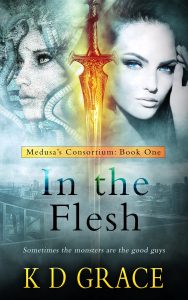I don’t know about you but there are few things I find more boring than a villain who is just flat out evil. You know the  kind I mean, the kind who would pull wings off butterflies just for the fun of it, the kind who would kill for no reason. Therein lies the problem. What makes a villain boring is when I have no idea why he’s such an evil bastard, when I can find, in the story no motivation for such despicable villainy, no driving force. I need motivation! I need to be able to identify on some level with what make him who he is.
kind I mean, the kind who would pull wings off butterflies just for the fun of it, the kind who would kill for no reason. Therein lies the problem. What makes a villain boring is when I have no idea why he’s such an evil bastard, when I can find, in the story no motivation for such despicable villainy, no driving force. I need motivation! I need to be able to identify on some level with what make him who he is.
The best villains are the ones you sort of have the hots for, the ones you can’t help but like. Even as you hate them, you still “get” them, you still understand that they, like everyone else, have baggage. They’re complicated. They have histories, they have quirks and neuroses that sometimes make them do horrific things and at other times make them surprise us with their humanity. They’re the ones you think of almost as much as you do the hero in a story. The best villains are the ones who, in spite of every horrible thing they do, you still want to see them redeemed.
What I hope I’ve created in Blindsided’s villain, Cyrus, is a character so twisted that he will at times make readers’ skin crawl, but a character so complex that he will, at other times make readers wonder how he might have turned out differently under different circumstances.
On the other hand, Blindsided has given me the chance to bring back the villain from In the Flesh — The Guardian,and toy with another fascinating story trope – what is it that makes us human, and how do we redeem ourselves and live in community? How do we care for one another when we’ve never been taught?
Can a villain be redeemed? Should a villain be redeemed? Let’s face it, what makes a villain interesting is that he is dangerous and unpredictable. Is the taming of a villain akin to de-fanging a vampire?
The one thing the Guardian will never be is tame or safe. The one thing Cyrus will never be is free of his history, the history he despises, free of the baggage that goes along with. Working with two such delicious villains in the same novel and pitting them against each other has been a real treat for me. I hope it will be for you too.
Here is a little excerpt of the Guardian’s observations about Susan and Reese’ first encounter with Cyrus. They have been kept in the dark, unable to get a good view of Cyrus’ face, but the Guardian is very observant. Enjoy.
Blindsided – Villainous Descriptions:
“He has one eye,” Reese said once they were tucked safely back into the limo and fighting the traffic out of Midtown. Neither of them had spoken before out of fear they might be overheard, but Desiree was deeply paranoid, so her limos were pretty much invasion-proof tanks.
“What?” Susan said. “How do you know?”
“I had my phone camera on selfie. Oh, I didn’t use it. I didn’t dare, but I had the angle just right that I got enough of a look at him to see that he wore an eye patch.”
“I love you, Reese Chambers,” she said, giving his hand a hard squeeze.
He forced a smile. “I couldn’t see much else. What about the Guardian? Did you enlist his help?”
She shifted uncomfortably in her seat. “Not intentionally, but he felt we were under enough of a threat that he made his presence known.”
“And?”
“Mr. Chambers is right, Susan. This Cyrus wears an eye patch. He is very much not human.”
“What else?” Reese asked, scooting to the front of his seat as she conveyed the demon’s words.
The Guardian didn’t wait for her to ask. His voice felt like an intimate whisper in her ear. “While he was very well dressed in a bespoke suit, he smelled of something more earthy.”
“More earthy? What do you mean, more earthy?” she asked, raising her hand to silence Reese when he opened his mouth to speak.
“Like sheep? Seriously?” She responded to the words only she could hear.
“Sheep? Here in New York City?” Reese said. “What else?”
“Susan, if you would just let me speak through your voice, I could—”
“No,” she said out loud. “I don’t trust you.” Then she blushed at Reese’s raised eyebrow.
“You don’t have to speak out loud. I can hear your thoughts just fine, remember?”
“I know that! I fucking know that!” This time she only thought her words, but she still felt the heat of embarrassment rise to her cheeks.
“What’s he saying?” Reese asked.
Fighting back a flood of memories, she listened as the Guardian spoke in what felt way too much like a lover’s voice—way more sensual than a voice inside her head should have been, and God help her, it felt good, even as it terrified her. But he was her prisoner, she reminded herself, and she would not lose control again. She focused on his words, and her translation became almost simultaneous.
“Cyrus is big, the Guardian says. I sensed that too just in the space he occupied,” she added. Then she continued relaying the Guardian’s thoughts. “He’s Michael’s height, but heavier built, though not fat. His hair is very blond, and while he’s flawed—that’s what the Guardian says—he’d still be considered handsome if he were to walk the streets of Manhattan, though he doubts that he often does that. He says that Cyrus is not a cosmopolitan man. In fact, while his clothing is bespoke, it lacks subtlety, as though he isn’t quite familiar with the way a man in this day and age should dress.”
“In this day and age?” Reese asked.
“He has the distinct feel about him of a being out of time, of not knowing quite how to act here in this age and place. I got that too. And also it was in the way he spoke.”
“I wondered about that,” Reese commented. “Though I forget sometimes because I’m used to it around Alonso. Magda and Talia seem to have adapted to the modern use of language a little better, but then they’ve not made the effort to isolate themselves that Alonso has.”
The Guardian chuckled softly, and Susan felt the sensation inside her chest. “Having experience of such isolation myself, perhaps I am quicker to pick up on his discomfort.”
Susan didn’t translate that. It was meant for her ears only, and it was meant conversationally, as though he spoke to a friend. But she wasn’t his friend. She fucking wasn’t his friend! As though he’d read her thoughts, which no doubt, he
had, he withdrew slightly. This time he spoke more formally, and Susan resumed the translation. “He’s not working for himself.”
“Then who?” both she and Reese asked at the same time.
“I do not know,” came the Guardian’s response. “But whoever it is, this Cyrus fears him a great deal.”
Susan translated this to Reese and the Guardian’s voice became close and personal again.
“His fear of whomever he serves makes him both dangerous and unpredictable, Susan. You must be very careful.”